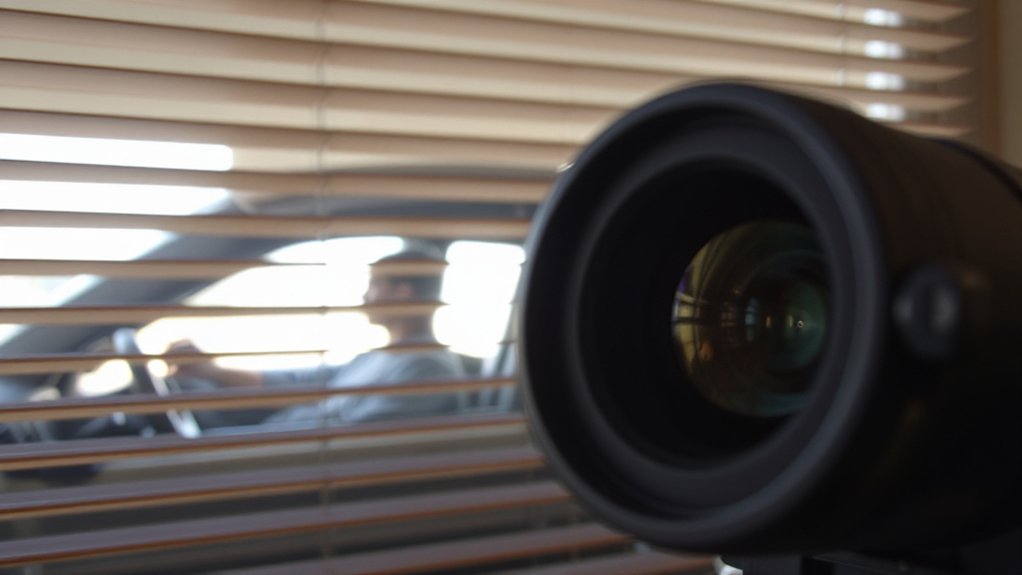Hiring a private investigator becomes necessary when DIY spouse surveillance fails due to emotional compromise, inadequate evidence collection, and amateur techniques that alert the subject. Professional investigators maintain objectivity while employing specialized surveillance methods, advanced digital forensics, and proper chain of custody procedures. Licensed professionals guarantee evidence admissibility in court through legal compliance and systematic documentation. Their access to databases, coordinated teams, and covert technology provides the thorough evidence needed for legal proceedings that amateur efforts cannot achieve.
Key Takeaways
- Professional investigators have access to specialized databases and surveillance technology unavailable to civilians for comprehensive evidence gathering.
- Licensed professionals understand legal compliance requirements to ensure evidence admissibility in court proceedings.
- Coordinated surveillance teams can monitor subjects without detection, unlike amateur attempts that often compromise investigations.
- Expert digital forensics can recover deleted communications and analyze complex data while maintaining proper chain of custody.
- Professional documentation and testimony preparation provide credible evidence that withstands legal scrutiny and cross-examination.
Cheating Spouse Investigation Services – In Order of Need

When a marriage faces suspected infidelity, individuals typically require investigation services in a specific sequence that aligns with their evolving needs and legal considerations. Initially, clients seek confirmation of suspicious behavior patterns through discreet surveillance and digital footprint analysis. Once infidelity signs are documented, the focus shifts to thorough evidence gathering for potential legal proceedings. Private investigators prioritize establishing timeline documentation, photographing meetings, and securing communication records. Subsequently, financial asset investigation becomes essential to uncover hidden accounts or undisclosed spending. It is also crucial to consider the importance of legal evidence standards during the documentation process to ensure validity in potential court cases. Finally, custody-related investigations may be necessary to protect children’s interests. This systematic approach guarantees that damaged spousal trust can be either rebuilt through transparency or formally dissolved with proper legal documentation supporting the affected party’s position.
Phase 1: Initial Suspicion – “I Think My Spouse Is Cheating”
When initial suspicions of spousal infidelity arise, private investigators employ systematic investigative techniques to gather preliminary evidence and establish factual documentation. The foundational phase typically incorporates thorough background research to identify behavioral patterns, discreet surveillance operations to monitor activities, and advanced location tracking through GPS technology to establish movement patterns and timeline verification. These investigative methods provide clients with objective data necessary to determine whether deeper investigation is warranted while maintaining strict adherence to legal surveillance protocols. Furthermore, licensed investigators must operate within legal frameworks to ensure that evidence is admissible in court proceedings.
Background Checks & Research
Suspicion alone rarely provides sufficient grounds for legal proceedings or life-altering decisions regarding marital infidelity. Professional investigators begin with detailed background checks to establish baseline behavioral patterns and identify potential inconsistencies in a spouse’s accounts. These research methods include analyzing financial records, social media activity, employment verification, and communication patterns. Digital footprints often reveal discrepancies between stated activities and actual whereabouts.
Trained investigators possess access to databases and resources unavailable to civilians, enabling thorough examination of public records, property ownership, and business associations. They methodically document findings while maintaining legal compliance standards. This systematic approach transforms emotional suspicion into factual evidence, providing clarity for individuals maneuvering intimate betrayal. Professional research establishes whether deeper surveillance measures warrant consideration or if concerns lack substantive foundation.
Covert Surveillance
Professional investigators deploy covert surveillance techniques when background research reveals sufficient indicators to justify intensive monitoring. These specialized operators understand surveillance ethics and legal boundaries that untrained individuals often violate, potentially compromising cases or creating liability exposure.
Licensed professionals employ sophisticated covert methods including:
- Mobile surveillance – Following subjects using multiple vehicles and coordinated teams to avoid detection
- Static observation posts – Establishing concealed positions near target locations for extended monitoring periods
- Technical surveillance – Utilizing specialized equipment like long-range cameras and GPS tracking devices within legal parameters
Professional surveillance maintains strict adherence to privacy laws while documenting behavioral patterns, meetings, and activities. Investigators create detailed logs with timestamps, photographs, and video evidence that courts accept. Their training prevents the amateur mistakes that invalidate evidence or trigger restraining orders against suspicious spouses.
Location Data
Modern infidelity investigations increasingly rely on location data analysis as the foundation for determining whether suspicions warrant further investigation. Professional investigators utilize sophisticated location tracking methodologies that exceed typical smartphone applications, analyzing movement patterns, frequency of visits to specific addresses, and temporal inconsistencies in reported whereabouts.
Licensed investigators understand the legal boundaries surrounding location tracking, ensuring evidence collection complies with state surveillance laws. They can distinguish between circumstantial location anomalies and genuine deceptive behavior patterns that suggest infidelity.
However, privacy concerns create significant legal obstacles for spouses attempting independent location monitoring. Unauthorized tracking devices or accessing another person’s location data without consent may violate federal and state privacy statutes, potentially rendering evidence inadmissible and exposing the tracking party to criminal liability.
Global Positioning System (GPS)
GPS technology represents the most precise tool available to private investigators for tracking subject movements during infidelity investigations. Professional investigators understand the legal implications of GPS tracking and operate within established boundaries to guarantee evidence admissibility in court proceedings.
Licensed investigators employ GPS tracking through:
- Vehicle-mounted devices that provide real-time location data and movement patterns
- Smartphone monitoring applications when legally permissible and properly authorized
- Covert tracking equipment designed for discreet surveillance operations
The legal implications surrounding GPS tracking vary greatly by jurisdiction, requiring investigators to navigate complex privacy laws and ownership rights. Professional investigators obtain proper authorization before deployment and maintain detailed documentation of tracking activities. This systematic approach guarantees that location evidence meets court standards while protecting clients from potential legal complications during sensitive relationship investigations.
Phase 2: Gathering Evidence – “I Need Proof”

Once initial suspicions are established, private investigators employ various technological methodologies to collect admissible evidence. Modern investigative techniques encompass mobile device and cell phone forensics, computer forensics, social network analysis, cloud-based data recovery, and drone surveillance operations. These evidence-gathering methods must comply with applicable privacy laws and procedural requirements to guarantee legal admissibility in potential proceedings. Additionally, utilizing advanced GPS tracking can provide real-time location data to support the investigation.
Mobile Device and Cell Phone Forensics
Digital breadcrumbs left on smartphones and mobile devices often contain the most compelling evidence in contemporary investigations. Professional investigators employ specialized mobile forensics techniques to extract digital evidence that reveals communication patterns, location data, and behavioral indicators essential to establishing facts.
Modern smartphones store vast amounts of information that can substantiate or refute suspicions:
- Text messages and app communications – Deleted conversations from messaging platforms often remain recoverable through forensic analysis
- Location tracking and GPS data – Timestamped coordinates revealing actual whereabouts versus claimed locations
- Browser history and search patterns – Digital footprints indicating interests, contacts, and activities
Licensed investigators utilize court-admissible methods to preserve chain of custody requirements. This technical expertise guarantees extracted digital evidence meets legal standards while protecting the investigation’s integrity and the client’s interests.
Computer Forensics
Beyond mobile devices, desktop computers and laptops represent repositories of extensive digital evidence that can substantiate complex investigations. Professional investigators employ sophisticated computer security protocols to extract deleted files, browser histories, and document trails that reveal patterns of deception or hidden activities. Metadata analysis uncovers timestamps, location data, and user interactions that create detailed behavioral timelines.
Skilled forensic specialists recover encrypted communications, financial transactions, and social media activities while maintaining legal compliance and evidence integrity. They identify attempts to conceal digital footprints, including wiped hard drives and modified system logs. This thorough approach captures the complete digital narrative, providing courts with authenticated evidence that withstands legal scrutiny and supports decisive resolution of complex marital disputes.
Social Network Forensics
While traditional surveillance methods capture physical activities, social media platforms preserve significant digital footprints that reveal relationship patterns, financial circumstances, and undisclosed associations critical to marital investigations. Professional investigators utilize advanced social media analysis techniques to uncover evidence that spouses often overlook or cannot legally access.
Private investigators examine detailed digital footprint data across multiple platforms to establish timelines and verify claims. Their expertise includes:
- Cross-platform correlation – Linking activities across Facebook, Instagram, LinkedIn, and dating applications
- Metadata extraction – Retrieving location data, timestamps, and device information from posts and images
- Network mapping – Identifying connections between individuals and establishing relationship hierarchies
Licensed professionals guarantee evidence collection complies with privacy laws and remains admissible in legal proceedings, providing thorough documentation that amateur efforts typically cannot achieve.
Cloud Forensics
Most modern individuals store extensive personal data across cloud-based services including email accounts, file storage systems, and synchronized applications that automatically preserve communications, financial records, and location histories. Private investigators possess specialized expertise in legally accessing cloud storage evidence that reveals patterns of deceptive behavior. They understand complex digital privacy laws governing lawful evidence collection while maintaining admissibility standards for potential legal proceedings.
Professional investigators utilize forensic-grade tools to recover deleted messages, analyze metadata timestamps, and trace synchronized activities across multiple platforms. This thorough approach uncovers evidence that untrained individuals frequently overlook or inadvertently compromise through improper handling. Licensed professionals guarantee all cloud forensics procedures comply with applicable state and federal regulations, protecting clients from potential legal consequences while maximizing the evidentiary value of recovered digital materials for divorce proceedings or custody disputes.
Drone Surveillance
Advanced drone technology enables private investigators to conduct thorough aerial surveillance operations that capture high-resolution photographic and video evidence from previously inaccessible vantage points. Licensed professionals utilize sophisticated unmanned aircraft systems to document infidelity patterns while maintaining legal compliance with FAA regulations and privacy laws.
Professional drone surveillance offers distinct advantages:
- Discreet monitoring of remote locations, vacation properties, and outdoor meetings without physical proximity
- Extended observation periods through advanced battery systems and automated flight patterns
- Multi-angle documentation providing extensive aerial footage for court proceedings
Certified investigators guarantee all aerial footage meets evidentiary standards while respecting airspace restrictions and privacy boundaries. This technology proves particularly valuable when documenting activities at isolated venues or tracking movement patterns across large geographic areas where traditional surveillance methods prove insufficient.
Surveillance Technology Installation & Deployment
When traditional observation methods prove inadequate, licensed private investigators deploy specialized surveillance technology systems that provide continuous monitoring capabilities while maintaining strict adherence to legal boundaries. Professional investigators possess advanced surveillance gear including GPS tracking devices, audio recording equipment, and covert cameras designed for discreet evidence collection. Their expertise guarantees proper installation tips are followed, maximizing effectiveness while avoiding detection or legal violations.
These professionals understand placement strategies that optimize coverage while respecting privacy laws. They know which devices work best in specific environments and how to position equipment for clear evidence capture. Unlike amateur attempts, investigators make sure all technology deployment complies with state surveillance regulations, protecting clients from potential legal complications while gathering admissible evidence for proceedings.
Phase 3: Building the Case – “I Found Evidence, Now What?”
Once initial evidence surfaces, private investigators must systematically expand their investigation through extensive documentation and verification processes. This phase typically involves securing digital evidence through forensically sound methods, conducting thorough asset and financial searches, and performing due diligence investigations to establish patterns or connections. The investigator may also need to locate additional witnesses, subjects, or relevant parties to strengthen the evidentiary foundation before presenting findings to the client. Employing specialized tools can enhance the effectiveness of these thorough investigations.
Digital Evidence Collection
Digital evidence collection represents one of the most technically complex and legally sensitive aspects of a private investigator‘s casework. Professional investigators understand that digital footprint analysis requires specialized tools and methodologies that far exceed typical consumer capabilities. Online privacy concerns add layers of complexity, as improper collection methods can render evidence inadmissible or expose clients to legal liability.
Experienced investigators employ sophisticated techniques:
- Forensic data recovery from deleted files, browser histories, and metadata analysis
- Social media monitoring through legal channels and public records integration
- Communication pattern analysis identifying suspicious contact frequencies and timing
Professional digital evidence collection guarantees proper chain of custody documentation, maintaining legal admissibility while protecting client interests. This technical expertise distinguishes professional investigators from amateur surveillance attempts.
Asset Searches
After digital evidence establishes patterns of deception or misconduct, asset searches become the critical bridge between discovery and actionable legal remedies. Professional investigators possess specialized databases and methodologies that uncover hidden financial accounts, real estate holdings, and business interests that spouses often conceal during marital disputes.
These thorough searches extend beyond basic public records to include offshore accounts, cryptocurrency wallets, and complex investment structures. Investment verification guarantees accurate valuation of discovered assets, preventing underreporting during divorce proceedings or support calculations.
Asset recovery efforts require meticulous documentation that meets legal standards for court presentation. Investigators trace financial flows, identify asset transfers, and establish ownership timelines that support equitable distribution claims. This systematic approach transforms suspicious behaviors into concrete evidence of financial misconduct.
Bank Searches
Building upon asset discovery findings, bank searches represent the investigative phase where preliminary evidence transforms into thorough financial intelligence. Professional investigators employ sophisticated methods to uncover transaction history patterns that reveal hidden financial behaviors and undisclosed accounts.
Licensed investigators access bank statements through legal channels, analyzing:
- Transaction patterns – Identifying unusual withdrawals, transfers, or deposits that suggest asset concealment
- Account relationships – Mapping connections between multiple financial institutions and hidden accounts
- Timeline correlation – Matching financial activity with suspicious behavioral changes or relationship milestones
This thorough transaction history analysis provides concrete evidence of financial deception. Investigators document spending patterns, identify unexplained cash flows, and trace money movements that support legal proceedings. Bank searches transform suspicions into verifiable proof, creating detailed financial profiles essential for divorce settlements, custody disputes, or fraud investigations requiring documented evidence.
Due Diligence
Investigators must validate every piece of collected evidence through rigorous due diligence protocols before presenting findings to clients or legal counsel. Due diligence importance extends beyond simple verification—it establishes credibility and legal admissibility. Professional investigators employ systematic due diligence strategies including cross-referencing multiple sources, documenting chain of custody, and confirming timestamps on digital evidence.
Comprehensive verification involves analyzing metadata, validating witness statements, and ensuring all documentation meets court standards. Investigators examine potential inconsistencies or alternative explanations that opposing counsel might exploit. This meticulous approach protects clients from embarrassing revelations during legal proceedings.
Thorough due diligence transforms raw surveillance data into compelling, defensible evidence. Without proper validation, even authentic findings may be dismissed by courts or mediators, undermining the entire investigation and potentially damaging divorce settlement negotiations.
Locates
Location services represent a specialized investigative discipline requiring sophisticated techniques to find individuals who have deliberately obscured their whereabouts. When spouses vanish with assets or children, professional expertise becomes essential for successful recovery efforts.
Private investigator costs for locate services typically reflect the complexity and urgency of each case. The benefits of hiring professionals include:
- Access to proprietary databases unavailable to the general public
- Advanced surveillance techniques and technological resources
- Legal compliance ensuring evidence remains admissible in court proceedings
Professional investigators understand jurisdictional limitations and cross-border protocols that amateur efforts often overlook. They maintain networks of contacts across multiple states and can coordinate with law enforcement when necessary. Skilled investigators also recognize when subjects have assumed new identities or employed counter-surveillance measures, adapting their strategies accordingly.
Phase 4: Legal Preparation – “I’m Ready to Take Action”
When clients possess sufficient evidence and decide to pursue legal action, private investigators shift into a vital support role for the litigation process. Professional investigators provide specialized litigation support services that assist attorneys in case preparation, evidence presentation, and courtroom strategy development. Additionally, private investigators often serve as process servers, ensuring proper legal document delivery while maintaining detailed records of service completion for court requirements. Their extensive experience and specialized legal support enhance the overall effectiveness of the case, ensuring critical insights are not overlooked.
Litigation Support
Legal proceedings demand thorough evidence gathering and strategic preparation, making private investigators invaluable assets in litigation support. Professional investigators understand evidentiary requirements and collaborate with attorneys to strengthen litigation strategy through meticulous documentation and witness preparation.
Private investigators provide extensive litigation support through:
- Evidence Documentation – Converting surveillance findings into court-admissible formats with proper chain of custody procedures and detailed reporting
- Witness Location and Preparation – Identifying key witnesses, conducting interviews, and preparing testimony that withstands cross-examination scrutiny
- Expert Analysis – Providing professional opinions on surveillance techniques, evidence authenticity, and investigative methodologies during depositions and trials
Their expertise transforms raw investigative findings into compelling legal arguments. Investigators work closely with legal teams to guarantee all evidence meets judicial standards while maintaining objectivity throughout proceedings, ultimately strengthening the client’s position.
Process Server Support
Although serving legal documents may appear straightforward, private investigators possess specialized expertise that confirms proper service execution and legal compliance. Process server challenges include locating evasive spouses who deliberately avoid service, understanding jurisdiction requirements, and maintaining detailed documentation for court validation. Untrained individuals often make critical errors that invalidate service attempts, delaying proceedings considerably.
Process server benefits extend beyond simple document delivery. Licensed investigators understand legal timeframes, proper identification protocols, and acceptable service methods within specific jurisdictions. They possess skip-tracing capabilities to locate individuals who have relocated or are intentionally hiding. Professional process servers maintain meticulous records, including photographs, timestamps, and witness statements that courts require for proof of service. Their expertise prevents costly delays and confirms divorce proceedings advance smoothly through the legal system.
Phase 5: Divorce/Custody Proceedings – “I Need Help With Custody”
Child custody disputes require objective documentation of parenting capabilities, living conditions, and adherence to court orders. Private investigators conduct systematic observations of childcare practices, home environments, and compliance with custody arrangements to gather admissible evidence. These investigations focus on documenting factual circumstances that directly impact the child’s welfare and safety within each parent’s care. The evidence collected through surveillance services significantly influences custody decisions by establishing patterns of responsible or negligent parenting.
Childcare Investigation (for custody disputes)
Custody battles often require objective documentation of parenting practices, living conditions, and child welfare circumstances that may not be readily apparent through standard legal proceedings. Private investigators specializing in childcare arrangements provide critical evidence that supports custody evaluations with documented facts rather than emotional testimonies.
Professional investigators gather compelling evidence through:
- Surveillance of daily routines – documenting actual parenting time, supervision quality, and adherence to court-ordered schedules
- Living environment assessments – photographing home conditions, safety hazards, and inappropriate influences affecting child welfare
- Behavioral documentation – recording instances of neglect, substance abuse, or endangering situations that impact parenting capacity
Their objective reporting transforms subjective concerns into admissible evidence, strengthening positions during custody hearings while ensuring children’s best interests remain the primary focus throughout legal proceedings.
Additional Information About {var1}

Child custody investigations often require private investigators to assess the suitability of neighborhoods and educational environments where children may reside. Investigators gather factual data about local school district performance ratings, safety statistics, and community resources to support custody determinations. This information becomes critical evidence when courts evaluate the best interests of the child standard in custody proceedings. Additionally, the need for independent verification ensures that the information collected reflects accurate and current living conditions.
Best Neighborhoods in {var1}
When selecting a private investigator in {var1}, understanding the local landscape and neighborhood dynamics can greatly impact the effectiveness of an investigation. Experienced investigators leverage intimate knowledge of residential patterns, traffic flows, and community rhythms to conduct discreet surveillance operations.
Key factors that enhance investigative success include:
- Residential density patterns – Mixed-use areas provide natural cover while maintaining clear sightlines
- Access to best parks and recreational facilities – Popular gathering spots often reveal behavioral patterns
- Community events and social hubs – Local festivals and activities create opportunities for natural observation
Professional investigators understand that certain neighborhoods offer strategic advantages for evidence gathering. Areas with multiple vantage points, consistent foot traffic, and varied commercial establishments allow for extended surveillance without detection. This local expertise proves invaluable when documenting suspected infidelity or other matrimonial concerns.
Best Schools in {var1}
Educational excellence in {var1} becomes a vital factor when private investigators handle custody disputes, child welfare cases, or background verification matters involving families. When investigating parental fitness or residency claims, understanding local school quality provides essential context for case development.
Professional investigators frequently examine enrollment records, academic performance data, and extracurricular participation patterns. The best schools often maintain detailed documentation that serves as admissible evidence in legal proceedings. Top educators can provide character references and behavioral observations essential for thorough background checks.
School district boundaries influence property values and residential choices, making educational quality a significant factor in relocation investigations. Private investigators leverage relationships with educational administrators to verify enrollment histories, attendance patterns, and academic achievements that support or refute claims in sensitive family matters.
Frequently Asked Questions
How Much Does Hiring a Private Investigator Typically Cost?
Private investigator fees vary considerably based on location, experience level, and case complexity. Surveillance expenses typically range from $50-200 per hour, with most professionals charging $75-125 hourly. Flat-rate packages for specific services may cost $500-3,000. Additional costs include mileage, equipment usage, and report preparation. Complex matrimonial investigations requiring extensive documentation often involve higher rates due to specialized expertise and legal admissibility requirements for gathered evidence.
Is It Legal to Hire Someone to Surveil My Spouse?
Hiring someone to surveil a spouse operates within complex legal limitations that vary by jurisdiction. While generally legal in public spaces, spouse privacy rights must be respected, particularly regarding private property, electronic communications, and intimate spaces. Professional investigators understand lawful boundaries and evidence collection protocols. Individuals should consult local attorneys before proceeding, as violations can result in criminal charges, civil liability, and inadmissible evidence in legal proceedings.
How Long Does a Typical Infidelity Investigation Take to Complete?
Investigation duration for infidelity cases typically ranges from two to six weeks, depending on the subject’s behavioral patterns and availability of evidence. Common timelines vary based on surveillance frequency, target’s schedule complexity, and cooperation from the investigating party. Professional investigators recommend allowing sufficient time for thorough documentation, as rushed investigations may compromise evidence quality. Cases involving elusive subjects or irregular schedules often require extended timeframes.
What Qualifications Should I Look for When Choosing a Private Investigator?
When evaluating investigator qualifications, clients should verify proper licensing, bonding, and insurance coverage. Essential hiring tips include reviewing experience in matrimonial cases, checking references from previous clients, and confirming knowledge of surveillance laws. Professional investigators should demonstrate expertise in evidence collection protocols, court testimony experience, and familiarity with admissibility standards. Credentials from recognized investigative associations and specialized training in domestic relations cases indicate qualified professionals capable of handling sensitive marital investigations.
Can Evidence Gathered by a Private Investigator Be Used in Court?
Court admissibility of private investigator evidence depends on surveillance legality and proper collection methods. Licensed investigators understand legal boundaries, ensuring evidence meets judicial standards. Courts typically accept professionally gathered documentation, photographs, and witness statements when obtained without violating privacy laws or constitutional rights. However, illegally obtained evidence faces exclusion. Professional investigators follow established protocols, maintain chain of custody, and provide credible testimony, markedly increasing chances of successful court admission during legal proceedings.
Conclusion
Professional investigation services provide structured approaches when personal surveillance efforts prove inadequate or legally problematic. Stillinger Investigations’ five-phase methodology guarantees evidence collection meets admissibility standards while protecting clients’ interests throughout legal proceedings. DIY surveillance often compromises case integrity through improper documentation, privacy violations, or emotional decision-making. Our licensed investigators maintain objectivity, utilize specialized equipment, and understand jurisdictional requirements. When relationship dissolution becomes inevitable, professional evidence gathering greatly strengthens positioning in divorce and custody negotiations.
Let us help you navigate this difficult situation with the expertise and discretion you deserve.
Stillinger Investigations, Inc.
170 Meeting St, Charleston, SC 29401
843-212-1338







